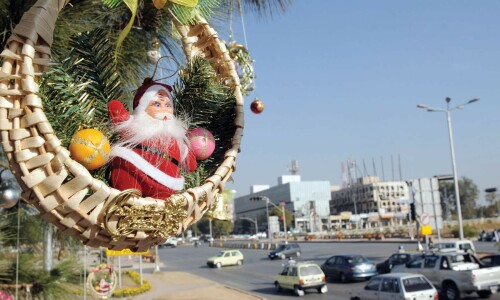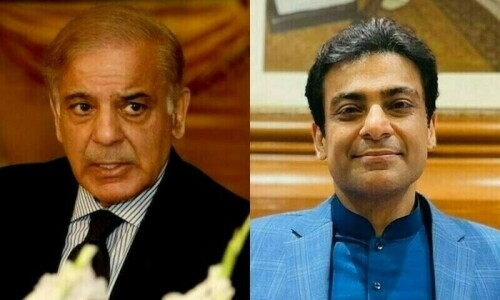JHANG: Maulana Muhammad Ahmed Ludhianvi’s timely withdrawal from the PP-78 by-election appears to have paved the way for a potential electoral victory of Masroor Nawaz Jhangvi, an independent candidate, even as Sindh Deputy Speaker Syeda Shehla Raza arrived in Jhang to campaign for Pakistan Peoples Party candidate Sarfaraz Rabbani.
Masroor Jhangvi, son of Sipah-i-Sahaba Pakistan (SSP) founder Haq Nawaz Jhangvi, has a sizeable vote bank of sympathisers in the Ahle Sunnat Wal Jamaat largely due to his father.
The PP-78 seat opened up after Maulana Ludhianvi was disqualified by a court and his outfit wasted no time in announcing support for Masroor Jhangvi in the by-election. Maulana Ludhianvi spent 20 days campaigning door to door for Masroor Jhangvi, till the court restored his candidature in the by-election.
Anticipating a split vote bank if the two went into an electoral battle, Maulana Ludhianvi announced his withdrawal from the election on Tuesday and reaffirmed his support for Masroor Jhangvi.
Meanwhile, the Sindh deputy speaker flew from Karachi into the fray to campaign for PPP candidate Sarfaraz Rabbani, who was awarded a party ticket at the eleventh hour. During her 72-hour stay in Jhang, Ms Raza launched a vigorously aggressive campaign in support of the PPP candidate, going to door to door in the constituency’s Shia-majority locales.
The campaign appears to have gained traction and she has been somewhat successful in persuading a large number of Shia voters to vote for the PPP candidate instead of Pakistan Muslim League-Nawaz’s Nasir Ansari, who was being described as the biggest threat to Masroor Jhangvi’s electoral victory. This switch in support by the Shia community vote bank might not ultimately work in their favour.
The PP-78 constituency, comprising urban areas of Jhang municipality, has been the centre point of sectarian acrimony for almost two-and-a-half decades. Sectarian sentiments have influenced elections in the constituency even prior to the emergence of SSP and Maulana Jhangvi.
The 1970 election was also fought on a sectarian basis and all three National Assembly seats from Jhang district had gone to Sunni candidates, who had defeated the apparently invincible candidates of the Shia community.
At present, the constituency comprises strong SSP and anti-SSP vote banks, both emotionally and ideologically committed to their respective causes. The polarisation has ripened over almost three decades and there has been a strong aversion to splits in their respective vote banks.
The anti-SSP vote bank includes the Shia community, a majority of Barelvis, liberals, secular elements, and other civil society activists.
The Shia community is the largest component of this alliance, with almost 30,000 to 40,000 votes.
Published in Dawn, December 1st, 2016













































